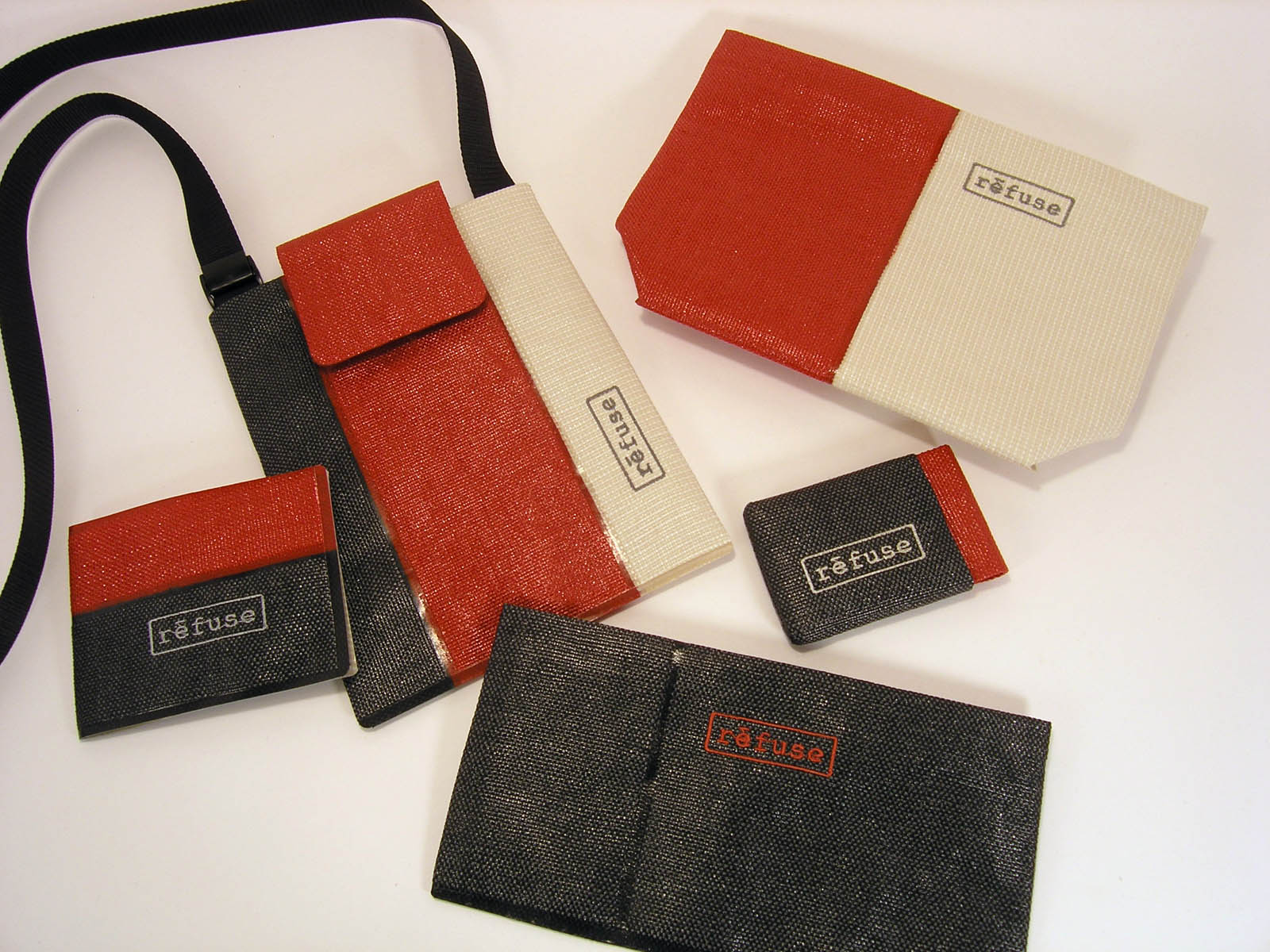
Dad’s challenge spurs Refuse Goods

Each Refuse Goods product is made to order from scraps left over after lighting and furniture manufacture. The small pieces are heat-fused into larger pieces to make pouches and bags. Photo: Refuse Goods.
Seattle-based Resolute designs and manufactures decorative lighting fixtures to architects’ specifications, using mostly American-made materials to create unique, elegant solutions for illuminating spaces. Brent Markee, a Resolute lighting designer, challenged his two sons to develop a product using discarded scraps of one of the company’s favored materials, Xorel® bio-based woven polyethylene textile from Carnegie Fabrics in New York, N.Y. “I almost felt obligated to figure out some re-use of even the smallest scraps,” writes Markee. “This 100 percent polyethylene fabric, in all its brilliant colors, is fully recyclable but the fabric seemed too nice to waste, especially because re-using uses a fraction of the energy required for recycling.”
The boys took the short course on product design, trying several ways to form a water-resistant wallet to protect their belongings during frequent surfing outings. When they hit upon heat-fusing as a successful way to bind the small Xorel pieces into a water-resistant whole, Markee recognized entrepreneurs in the making. Markee and sons launched a small business brand, Refuse Goods, with products that include the colorful lightweight wallets, as well as simple and functional pouches and bags.
The development of Xorel fabric also involves a father-and-son combination. Carnegie Fabrics founder Robert Goldman committed to become a PVC-free company in 1981. Sustainable and recyclable Xorel has been PVC-free for 30 years. However, Goldman’s son, Cliff, introduced bio-based Xorel in 2013, a plant-based high-performance textile made of 65–85 percent sugar cane fibers in six designs and 91 colorways. See a video on the philosophy behind Xorel.










